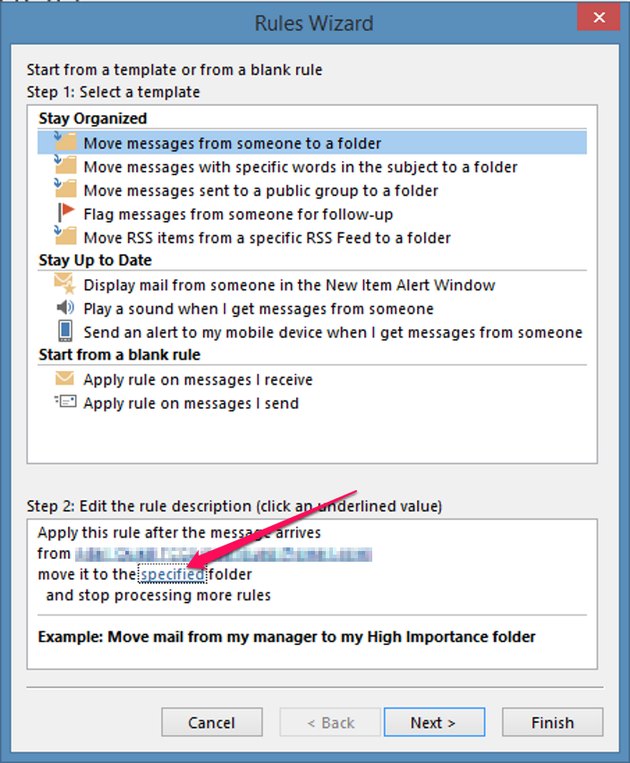
:max_bytes(150000):strip_icc()/Screenshot50-5c3f60f5c9e77c0001d789fb.png)
Clients know that most of us are walking around with our smartphones all day, receiving emails as they come in. Right up there with unreturned phone calls are unanswered emails. Scheduling return phone calls can be an efficient and pleasant way to handle telephone communication, as both you and your client will be prepared to sit down and focus on your conversation. If you cannot get it done yourself, designate someone to return calls for you and set up a time to speak with your clients. If you have trouble getting calls made, set aside a time each day for returning calls.

Nothing irks a client more than an unreturned phone call. Put systems in place to keep you on track. Make sure you do not ruffle your clients’ feathers by failing to respond to communications.

Believe in your sixth sense, and decline cases that are likely to cause you more trouble than they are worth.
#Outlook filter unreplied emails how to
Consider how to screen for issues that have caused you trouble in the past so they do not pop up again.īeyond the specific items you include in your client screening checklist, do not ignore warning bells that ring in your head as you speak with a potential client. Make sure to include criteria from your own personal experience. If your client initially comes to you with demands you cannot reasonably meet (such as presenting you with a motion to dismiss when the opposition brief they are asking you to write is due this week), you may want to pass on the case. Make sure you ask enough questions to know whether you can reach your client when necessary. In order to satisfy a client on communication, you must be able to reach them. Clients often complain that attorneys do not communicate with them. If your potential client has a habit of firing or suing their attorneys or other service providers, this should be a red flag. Make sure they can afford you, and get a reasonable retainer up front. You cannot always just walk away from a non-paying client, and financial issues between you will lead to trouble. If your potential client cannot afford your services, you are likely to wind up in trouble. If you want to expand your practice, get a mentor or find other ways to gain experience in a new field before taking on a client who needs those services. Only take on clients where the primary areas of need are those in which you are experienced. Here are some suggestions to get you started: Client IntakeĬreate a checklist to help you screen potential clients so you can try to avoid the things most likely to lead to trouble. Implement simple systems in your office to minimize your risk. Don’t let administrative tasks trip you up and cause you trouble. The ramifications of an ethics complaint are huge, as consequences can range from private admonishments all the way up to disbarment. They include things like failing to communicate with clients, failing to meet deadlines, and failing to complete CLE requirements and accurately certify compliance. Many ethics complaints, however, are at heart administrative failures. Some ethics complaints stem from the substantive practice of law - failing to research and argue well, failing to notify the court of an authority against your client, or other issues.


 0 kommentar(er)
0 kommentar(er)
